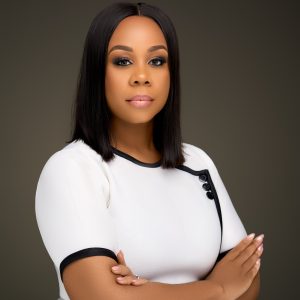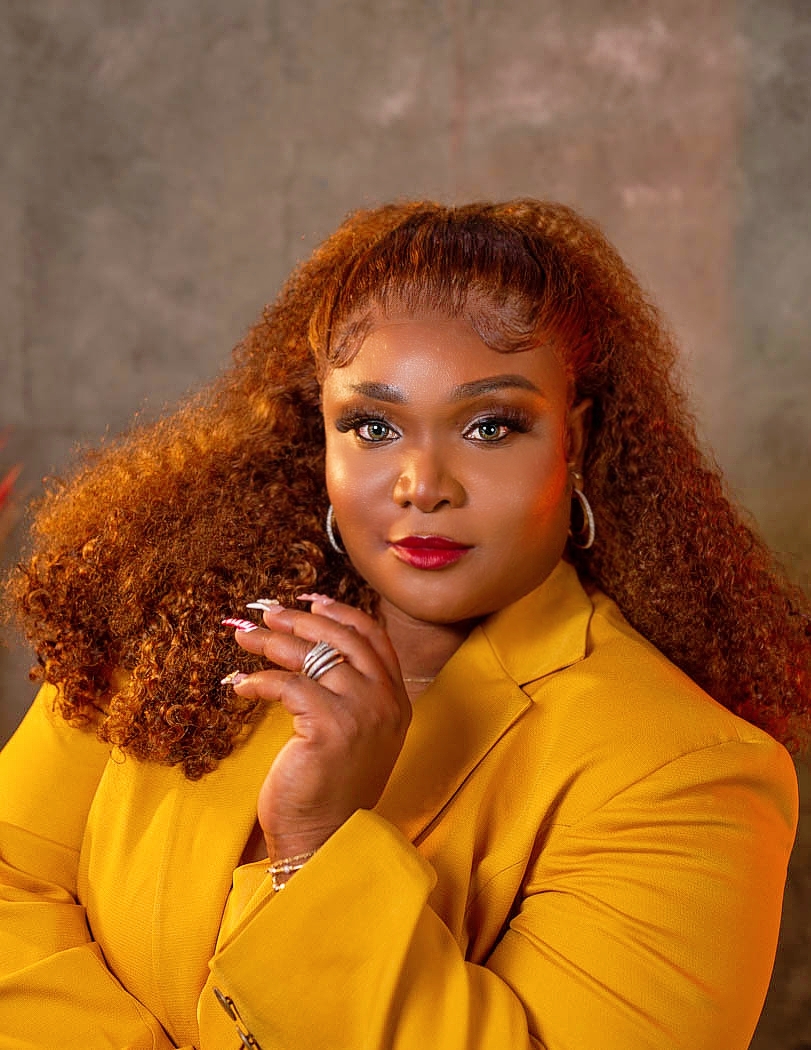Afripreneur
3 ways minority founders can increase access to capital

Phone Credit: Mark Filus
I’m truly obsessed with the overarching problem of “a lack of access to capital”. It’s a truly complex one deeply rooted in systemic racism, misogyny, classism, and unconscious bias. Over the last few years of building ecosystems, I’ve compiled thoughts, observations, and data collected as a means of making a hint of sense of this problem.
A lack of access to capital can be broken down into 3 Barriers to Entry (what I’m coining as B2Es):
B2E 1) Lack of know-how/knowledge: what makes a company “investable”, “investment-ready”, or “sexy enough to invest in”
B2E 2) Lack of social capital/network: the sheer ability to be seen, recognized, or connected to people who could then connect us to investment
B2E 3) Lack of resources: tangible products/opportunities that get founders to the next level
From what I’ve learned, resilience and persistence are key in the way we approach these B2Es. I took a survey and asked 150 Black Female Founders what they thought the lead component in a lack of access to capital was. One answer stuck out to me above the rest.
“It’s definitely a lack of know-how. Our people are resilient and adapt to anything. Historically, we have be deprived of this knowledge. But once we understand and get access to it, we’re resilient enough to figure it out on our own.”
I always want to be a solution and a vehicle for providing others with a concrete solution. As such, I thought it would at minimum be helpful to share 3 ways I feel we, as minority founders can start combating these B2Es:
Why? Because once we know how, “we’re resilient enough to figure it out on our own.”
B2E 1) Lack of know-how/knowledge
B2E 1) Google “what makes a start-up investment ready”: Understand what first makes a start-up “investment-ready” or “investable” can increase our awareness around the layered and complex components that go into decision-making for investors. This also gives us insight into WHY an investor may not give you their time. Maybe our industry/sector doesn’t fit into their investment strategy? Maybe our traction isn’t high enough. What will help us best is to avoid making assumptions. Do your research first. 2 words: YouTube University.
B2E 2) Lack of social capital/network
B2E 2) Connect with people on LinkedIn and/or Attend Local Meetups: LinkedIn has been an extremely useful tool in helping me connect with founders, operators, and investors alike. This platform gives us a ton of access to people worldwide. Read what other thought leaders are writing, slide into investors’ DMs, and set up some virtual or in-person coffee dates. While I get super consumed in my work, I’ve also been forcing myself to attend more local tech meetups/events as a way of increasing my network. Just remember: No one person is unreachable–if you want it badly enough, you’ll find a way to get in contact with them.
B2E 3) Lack of resources: tangible products/opportunities that can help us get to the next level
B2E 3) Seek and you shall find: Now, more than ever, there are a TON of development and pitch programs (especially for minorities) in which we can participate to increase our own access to resources and opportunities. BLCK VC has one. Lightship Capital has one. AMEX has one. The list goes on. They’re out there–trust me. We just must be disciplined enough to find them. Use solutions from B2Es #1 and #2 as a means of doing this.
I’m not saying that these solutions are the end-all be-all. But it’s a start. What I’ve learned from my own experiences is this: Avoid carrying the burden of external experiences and forces that are beyond our control. All we can control is ourselves. The more we look at “a lack of access to capital” as this huge, overbearing, insurmountable problem, is the moment we throw in the towel and sell ourselves short.
The steps above are things we can do daily to help us decrease the inequality gap, if even just within ourselves.
Article by Jeanine Suah, Co-founder of Thynk Global
Afripreneur
Meet Datari Ladejo, the digital strategist helping brands thrive in the digital economy

Datari Ladejo is a lawyer, digital strategist, and a passionate advocate for women’s empowerment. She is the Founder/CEO of Fernhill Digital, a consulting group of companies dedicated to helping individuals and businesses thrive in the digital ecosystem, through data-driven digital solutions. Datari is also the creative force and founder of Evergreen Curators, a creative marketing agency that empowers brands with bold and innovative digital marketing. As a passionate advocate for women’s empowerment, Datari champions initiatives that elevate and support women in the male-dominated tech industry and serves as a leader and mentor in several women’s organizations. In this exclusive interview with Alaba Ayinuola of Business Africa Online (BAO), Datari speaks on her entrepreneurship journey, passion for storytelling, community building and how she is helping brands connect authentically with their audiences. Excerpt.
Alaba: Can you briefly share with us your entrepreneurship journey? What inspired you to start the Fernhill Digital and Evergreen Curators and what problem do they solve?
Datari: My entrepreneurial journey began almost two decades ago, when I was just 18. Driven by a desire for financial independence I co-founded “Pink Mojito Events” with a university friend. Since then, entrepreneurship has been a constant in my life, often running parallel to full-time employment. My legal background, with a law degree, an LLM in international dispute resolution and economic law, and a call to the Nigerian bar in 2013, has instilled in me a strong desire to challenge the status quo. I believe that true entrepreneurial impact comes from a deep-seated drive to identify problems within your society and implement innovative solutions.
Fernhill and Evergreen are both deeply personal projects. I founded Fernhill during a significant career pivot from law to tech. My passion for storytelling and community building ignited during the pandemic through my YouTube channel “The Dee Low” inspired me to help brands connect authentically with their audiences. I saw a gap in the Nigerian market where brands often prioritize advertising over genuine engagement. My mentor’s belief in my vision and her decision to become my first client gave me the push to take the leap.
Evergreen emerged as the next step in Fernhill’s evolution. After a challenging period that nearly forced me to shut down the business, I restructured the business with the help of a consultant and mentor. This revitalization led to the birth of Evergreen Curators, our creative agency. By doubling our team, and streamlining our processes, we positioned ourselves for significant growth and expanded our service offerings.
Alaba: What sets you apart as a digital strategist?
Datari: Honestly, my secret sauce is an ability to blend digital strategy with a deep understanding of human psychology. My background in international dispute resolution really equipped me with a unique perspective. In arbitration, my specialization and key focus area, the main objective is to get nations or large corporations to settle out of court. Having two young children, I know firsthand how difficult it is to resolve even a simple issue of who gets to play with a particular toy. Now imagine that with a country or a state-owned corporation, the toys are a lot bigger, and it gets messy really quickly.
To truly reach an amicable resolution that benefits both parties you have to understand people’s motivations on a deeper level and learn how to read between the lines. The same principles apply in the digital ecosystem. By understanding the underlying motivations and emotions of a particular target audience, it becomes easier to craft strategies that resonate deeply with them and drive meaningful results.
Ultimately, my goal is to use my skills and experience to help businesses connect with their audiences in a new way and create digital experiences that are truly transformative at every touchpoint.
Alaba: Can you share your journey of building a successful online brand? How do you measure success and what metrics do you track?
Datari: For anyone that wants to build a strong online brand, it’s a journey that requires dedication, consistency, and a deep understanding of different platforms and digital marketing techniques.
For my personal brand, I try not to get too caught up in the numbers but for my companies Fernhill and Evergreen, measuring success is an ongoing process. While traditional metrics like website traffic and social media followers are important, we also prioritize qualitative measures like engagement, brand sentiment, and client satisfaction. Tracking these metrics helps us understand how well our brands are resonating with our target audience and identify areas for improvement. This iterative approach means that we are always testing out new tactics and letting go of those that aren’t working or serving the needs of our audience anymore.
Alaba: How do you stay ahead of the competition, and how do you see AI impacting your business operations?
Datari: Firstly, just like in life your major competition trying to build a brand online is yourself, and the major struggles that I see people face are trying to stay relevant and how to stand out amongst all the noise. It’s important not to sugarcoat the reality of the digital ecosystem, it is evolving so rapidly that if you don’t keep up with the latest developments you will get left behind. Also, if you focus on the competition too much you will not only lose momentum but also neglect the one key thing that audiences are looking for these days…the most authentic version of yourself or your brand.
We are already embracing AI in Fernhill and Evergreen to help us operate more efficiently. Our next major focus will be tailored training to make sure that each member of our team is equipped with the knowledge to use AI tools to work faster, smarter, and to help deliver better business outcomes for our clients.
Alaba: What drives your passion for building businesses in the tech industry, how do you stay motivated?
Datari: My major motivation is the fact that the tech industry really changed my life, and building businesses that help people navigate the complex digital ecosystem is my love letter to tech, it’s my way of paying forward the world of opportunities that the industry gave me. I never thought that I would leave legal practice behind, especially as a newlywed with a newborn child. The decision was tough, but I knew that taking a leap of faith would either be career suicide, or I would figure it out along the way and discover a true passion. I have so many varying interests across marketing, communications and strategy but they are all inextricably linked and each one fuels my passion for innovation.
Alaba: Would you like to share any exciting projects or initiatives on the horizon?
Datari: Our most recent project was the restructuring of Fernhill to a parent company and the launch of our subsidiary creative agency Evergreen. In 2025, we have 3 major projects planned, which are still under development but each one involves breaking into new territories, which is exciting for us.
Alaba: Lastly, what advice would you give to aspiring entrepreneurs?
Datari: For aspiring entrepreneurs my advice would be to start small but think big. Don’t be afraid to start with a minimal viable product and then iterate from there. The key is to get your product or service in front of customers as soon as possible.
Secondly, passion is paramount. Your passion will fuel your drive and help you overcome challenges and when you are passionate about what you do it will show in your work.
Also, learn to be agile. The business landscape is constantly changing so you need to be prepared to pivot your strategy as needed. My most valuable advice would be to nurture relationships with other entrepreneurs or people in your industry, surround yourself with people who will inspire and support you. Those relationships are critical when you are trying to build something outside of your comfort zone.
B I O G R A P H Y

Datari Ladejo is a lawyer, digital strategist, and a passionate advocate for women’s empowerment. Her robust educational background includes an LLB in Law from the University of Staffordshire, BL from the Nigerian law school, and an LLM in International Dispute Resolution and Economic Law from the University of London Institute in Paris.
She is the Founder/CEO of Fernhill Digital, a consulting group of companies dedicated to helping individuals and businesses thrive in the digital ecosystem, through data-driven digital solutions. Datari is also the creative force and founder of Evergreen Curators, a creative marketing agency that empowers brands with bold and innovative digital marketing.
As a passionate advocate for women’s empowerment, Datari champions initiatives that elevate and support women in the male-dominated tech industry and serves as a leader and mentor in several women’s organizations. She is an active member of the Society of Women Engineers and serves on the board of The Rebuilding Lives Mission, a non-profit focused on equipping women and youth in rural Nigeria with entrepreneurial skills.
Additionally, she co-founded the Advanced Level Youth Empowerment Foundation, addressing critical issues like education and unemployment among Nigerian youth.
Beyond her professional achievements, Datari is a devoted mother to her two children, Tiara and Tije. She shares her journey of motherhood and marriage on social media, inspiring women to embrace progress over perfection in their lives.
Afripreneur
Oluchi Anoruo on building SmartPharm and addressing access to healthcare products

Pharmacist Oluchi Anoruo is a visionary healthcare leader and a passionate advocate for global health and well-being. As the Co-founder and CEO of SmartPharm, Oluchi has leveraged her extensive experience to drive innovative solutions in the pharmaceutical industry. Her over six years of practice as a pharmacist have equipped her with a deep understanding of clinical practice, pharmaceutical management, and patient care. Under her leadership, SmartPharm is at the forefront of transforming access to healthcare products, ensuring better health outcomes for patients. In this interview with Alaba Ayinuola of Business Africa Online (BAO), Oluchi shares her entrepreneurship journey, advocacy for global health and well being and how she is addressing access to healthcare products in Nigeria with SmartPharm. Excerpts.
Alaba: Could you briefly share your entrepreneurial journey, and what inspired you to start a pharmacy aggregator startup?
Oluchi: My journey as a founder started in 2017 when I lost my aunt due to the lack of access to an emergency drug needed to reduce the swelling in her brain caused by head trauma she sustained in a car accident. Her death was preventable. This painful experience exposed me to the bottlenecks patients faced in accessing vital medications and made me more intentional as a pharmacist to help patients gain easy access to vital medications. Leveraging on the influence I had within my professional circle, in 2018, I created an e-directory of some Pharmacies in Owerri, Imo State on Google sheet which I regularly updated. This e-directory was extremely useful in quickly finding the Pharmacy in the community to visit for a particular medication.
Having no entrepreneurial or tech skills, I embarked on numerous self-development journeys that enabled me to gain the required skills. I enrolled in online courses on EDx for entrepreneurship. During this time (2019), I got selected by Circuit Pointe a women focused non-profit organization for a 5 months web development course. On completion, I equally got awarded the fully funded Andela/Google/Pluralsight scholarship on android development. It was during this program I got coaching that helped me to pursue product design as it was more relatable , human centred and gave me room to hone my problem solving skills. I enrolled in Pixels online design school, graduated top of my class and got a scholarship sponsored by UK tech hub to further develop my product design skills. During this time, I registered SmartPharm as a business name.
I went on to work remotely as a contract product designer for various healthtech companies while building SmartPharm and also working as a community pharmacist. As a testament to my academic, professional and social achievements, I enrolled at the Nigerian University of Technology and Management (NUTM) in September 2021 as one of the selected sixty scholars for a fully funded one-year postgraduate program on tackling African perennial challenges. During my time in NUTM I was able to develop the first MVP of SmartPharm with the help of some colleagues who I parted ways with after the program. I also met one of my co-founders at NUTM. My co-founders and I have gone on ahead to achieve great milestones and we are positioning to achieve more towards our goal of changing the way Nigerians access their healthcare products.
Alaba: What specific problems does your platform solve?
Oluchi: We are addressing the poor and untimely access to healthcare products (medication, medical devices and pharmaceutical cosmetics) for persons who are in need of them.
Alaba: How does your platform aggregate pharmacy services, and what benefits do users gain?
Oluchi: We typically work with and onboard registered community pharmacies. Our users get to enjoy discounted prices offered in partnership with our partner pharmacies.
Alaba: Can you walk us through your platform’s key features and user experience?
Oluchi: Using smartpharm.net is pretty easy. Our platform is a webapp for now and you can find and order your health products in 3 easy steps – search, order and receive(door delivery or you can pick it up yourself.)
We pride ourselves in providing timely access to your medication and also delivery. On the average, we typically find and deliver within an hour (within Lagos). We are in Lagos for now.
Alaba: How do you ensure competitive pricing and discounts for users?
Oluchi: We are very customer centric and we are always on the lookout for our customers. Because we have a lot of pharmacies in our network, our customers get to choose the best price to buy their health products.
Alaba: What strategies do you employ to retain users and encourage repeat business?
Oluchi: It’s simple- we put the customers/users first.
Alaba: How has your entrepreneurial journey impacted your personal life and values?
Oluchi: Being an entrepreneur has given me the opportunity to make impact by contributing to reducing avoidable deaths due to poor and untimely access to health products and also instil values that made me over the years such as integrity, fair hearing, respect, empathy and discipline into my business through the way we treat people who work for us and they people we serve.
Alaba: Lastly, What role do you see pharmacy aggregators playing in improving healthcare outcomes?
Oluchi: I strongly believe that the adoption of tech enabled solutions into the healthtech (pharmacy tech space), will completely revolutionize the pharmacy space in the nearest future culminating in enhancing the way people access their health products subsequently helping to improve people’s health outcome. If Mr A can have constant access to affordable health products without the need to worry about his next refills or where to get his next refills, then he will be able to stay faithful to taking his medications with all things being equal.
B I O G R A P H Y
Pharmacist Oluchi Anoruo is a visionary healthcare leader and a passionate advocate for global health and well-being. With a robust educational background that includes a Bachelor of Pharmacy from the University of Uyo and postgraduate studies at the Nigerian University of Technology and Management, Oluchi combines academic excellence with practical expertise. Her dedication to lifelong learning is evident in her numerous certifications, including notably Jim Leech Fellowship and Ashoka in Social Innovation in Health and Wellness.
As the Co-founder and CEO of SmartPharm, Oluchi has leveraged her extensive experience to drive innovative solutions in the pharmaceutical industry. Her over six years of practice as a pharmacist have equipped her with a deep understanding of clinical practice, pharmaceutical management, and patient care. Under her leadership, SmartPharm is at the forefront of transforming access to healthcare products, ensuring better health outcomes for patients.
Afripreneur
Redefining Real Estate Marketing: An Interview with Imelda Usoro Olaoye, Founder of Thinkmint

Imelda Usoro Olaoye is a seasoned sales and marketing leader who has worked in various sectors of the economy. Imelda is an expert in real estate, marketing consultancy, using new tools, technology and methods having successfully launched and run an award winning real estate digital marketing firm with branches in Lagos, Nigeria and Estonia, Europe; Thinkmint Nigeria and Europe. She started her real estate/home sector marketing career in Clarions UK after which she joined PropertyPro.ng where she rose to lead the company’s media, real estate transactions and exhibitions team. In this exclusive interview with Alaba Ayinuola of Business Africa Online (BAO), Imelda shares her entrepreneurship journey with a passion for creating solutions that meet people’s needs and the real estate market in Nigeria. Excerpts.
Alaba: Could you briefly share your entrepreneurship journey, and what inspired you to start a real estate deals marketing company?
Imelda: My entrepreneurship journey began with a passion for creating solutions that connect people with the resources they need. While working in media, exhibitions, and events, especially as the Head of Transactions, Media/Exhibitions and organising the African Real Estate Discussions & Awards (AFRECA) at Tolet.com.ng ; now PropertyPro.ng, I recognized a significant gap in the real estate market: the need for a platform that simplifies transactions and bridges the gap between buyers, sellers, and industry professionals. This inspired me to found Thinkmint, a real estate marketing company. It was born out of the desire to provide a seamless experience for clients and to use technology as a tool for creating accessibility and efficiency in real estate marketing.
Alaba: Can you share your experience in real estate marketing and notable achievements?
Imelda: Over the years, I’ve built a robust experience in real estate marketing by managing high-value transactions and leading teams to deliver measurable results. Notably, I spearheaded the launch of Real|Life Magazine, an innovative publication showcasing real estate opportunities, developed an online marketplace, www.thinkmint.ng/buyrealestate, which simplifies the discovery and purchase of offplan properties with No Agency Fees, Flexible Payment Plans and Low Entry Fees. Additionally, through events like the Real Estate Discussions and Awards (REDA), I’ve fostered industry networking and thought leadership, which have contributed to the visibility and credibility of Thinkmint in the real estate sector. We recently also launched a branch in Estonia, Europe to allow for ease of transactions for Nigerians in Diaspora.
Alaba: What services do you offer, and how do you differentiate your company from other platforms?
Imelda: Our services include real estate marketing, lead generation, content creation, and event management tailored specifically to the property sector. What sets us apart is our focus on integrating cutting-edge digital tools with traditional marketing techniques. We offer personalized solutions for clients, leveraging data analytics to optimize campaigns and drive results. Additionally, our platforms, including Real|Life Magazine and www.thinkmint.ng/buyrealestate, provide a unique blend of informative content and actionable opportunities, creating a comprehensive resource for the real estate market, with a focus on offplan properties.
Alaba: What marketing strategies do you find most effective for real estate deals, and how do you leverage technology in your marketing efforts?
Imelda: Digital marketing has proven to be the most effective strategy. We rely heavily on SEO, targeted social media campaigns, and email marketing to generate leads and close deals. Technology plays a crucial role in our operations—we use analytics tools to track campaign performance, understand customer behaviour, and refine our strategies. We also utilize CRM systems to manage client relationships effectively and online marketplaces to streamline property listings and inquiries.
Alaba: What trends do you see shaping the real estate industry in Nigeria?
Imelda: The industry is rapidly embracing technology, with the rise of online property listings and virtual tours gaining traction. There is also a growing interest in eco-friendly developments and smart homes, reflecting global trends. Additionally, flexible payment plans and increased involvement in public-private partnerships are helping to address housing deficits. As the market evolves, I see technology continuing to drive transparency and efficiency in real estate transactions.
Alaba: What inspired you to create a business women’s hub, and how do you aim to empower women in business?
Imelda: The platform Business Women Hub is a non-profit organization inspired by my belief in the power of collaboration and mentorship. Women often face unique challenges in business, including limited access to resources and networks. The hub serves as a platform to connect women entrepreneurs, provide educational resources, and create opportunities for collaboration and growth. Through workshops, networking events, and mentorship programs, we aim to equip women with the tools and support they need to thrive in their ventures. Business Women Hub specifically caters for women within their first five years in business and has grown to have over 1500 registered businesses located in Nigeria , South Africa , Kenya , United Kingdom, Canada , New Zealand, Australia & USA.
Alaba: What challenges do you see women facing in business, and how do you address them?
Imelda: Women often face challenges such as access to funding, balancing work-life responsibilities, and overcoming societal biases. To address these issues, I advocate for policies and programs that provide financial support and promote gender equity. Through the Business Women’s Hub, we create a supportive community where women can share experiences, learn from one another, and gain confidence to navigate these challenges.
Alaba: Lastly, what advice would you give to aspiring entrepreneurs and businesswomen?
Imelda: My advice is to stay resilient, consistent, embrace continuous learning, and never underestimate the value of networking. Build a strong support system and seek mentorship from those who have walked the path before you. Also, be open to innovation and leverage technology to create solutions that stand out. Most importantly, believe in yourself, and your vision—success often starts with a mindset of possibility.
B I O G R A P H Y
Imelda Usoro Olaoye is a seasoned sales and marketing leader who has worked in various sectors of the economy. Imelda is an expert in real estate, marketing consultancy, using new tools , technology & methods having successfully launched and run an award winning real estate digital marketing firm with branches in Lagos, Nigeria and Estonia, Europe ; Thinkmint Nigeria and Europe.
She started her real estate/home sector marketing career in Clarions UK after which she joined PropertyPro.ng where she rose to lead the company’s media, real estate transactions and exhibitions team. Prior to this she had worked in the banking and pharmaceutical industry.
A graduate of the University of Port- Harcourt, she has honed her skills in digital marketing, PR & advertising and business practice from the Edinburgh Business School.
Imelda is a member of the International Real Estate Federation, FIABCI. She is also the Founder of Business Women Hub, a nonprofit organization dedicated to the growth of female-owned businesses , especially within their first five years of existence, and 1303 DSylva Events.
Apart from being an entrepreneur, she is a very passionate business growth manager, an award winning real estate consultant and philanthropist.
-

 Afripreneur1 day ago
Afripreneur1 day agoOluchi Anoruo on building SmartPharm and addressing access to healthcare products
-

 Afripreneur1 day ago
Afripreneur1 day agoRedefining Real Estate Marketing: An Interview with Imelda Usoro Olaoye, Founder of Thinkmint
-

 Economy1 day ago
Economy1 day agoMeta Hosts its First Youth Summit in Nigeria to Drive Innovation and Empowerment
-

 Technology1 day ago
Technology1 day agoLG’s Brand Reinvention: A Global Success Story
-

 Afripreneur7 hours ago
Afripreneur7 hours agoMeet Datari Ladejo, the digital strategist helping brands thrive in the digital economy













